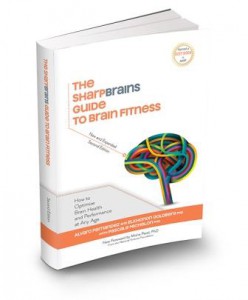Can cinnamon prevent Alzheimer’s Disease?
 You may have come across several headlines like this over the last few weeks, based on a new study apparently showing that the compound that causes that bright cinnamon smell may help prevent the development of tau protein tangles, the tangles that notoriously form in brains affected by Alzheimer’s Disease.
You may have come across several headlines like this over the last few weeks, based on a new study apparently showing that the compound that causes that bright cinnamon smell may help prevent the development of tau protein tangles, the tangles that notoriously form in brains affected by Alzheimer’s Disease.
Are we to conclude that cinnamon can play a significant role in fighting Alzheimer’s disease? That perhaps it can match or even surpass the benefits of physical and mental exercise, and other lifestyle factors?
Probably not. Let’s see why, by analyzing the study in detail.
The Study
In an in vitro experiment (done in a test tube, not in a human or animal) researchers examined the effect of two cinnamon compounds on tau protein accumulation: cinnamaldehyde (CA) and epicatechin (EC).
Under normal circumstances tau protein is responsible for the assembly of “microtubules” in brain cells. These microtubules form the “skeleton” of the cells. If the protein does not bind properly to the microtubule it tends to clump together. This is how tangles are formed. And this is important because these are insoluble fibers that will prevent neurons from functioning well.
The study showed that the cinnamon compound CA was effective in preventing the formation of tau tangles. CA, an oil, seems to inhibit accumulation by protecting the protein from oxidative stress. This is because CA binds to cysteine residues that may otherwise damage tau.
The other cinnamon compound, EC, is a powerful antioxidant. It can be found in other food, such as blueberry and chocolate. It not only dampens the damages caused by oxidation but can also interact with cysteine residues in a way similar to the protective action of CA.
The Interpretation
Can one conclude from this study that ingesting large amounts of cinnamon could protect from developing Alzheimer’s?
The answer is no. This was a “test tube” experiment, and it is highly unclear that the results would be replicated in human beings consuming cinnamon. Many such promising experiments fail when tested with humans- which is why it is much wiser to pay more attention to randomized trials conducted with humans, and less to “flavor of the day” news coverage.
The coverage around this study was indeed a good example of how science can travel too fast from lab to news headlines. Because of the general interest in finding a cure for Alzheimer’s disease, results which would have never got to the public eye before –because they are many steps away from a real solution– now find themselves on the front page. And the average reader doesn’t know what to do with the article. Is it relevant to me today? How does it compare to the article I read last week talking about XYZ?
And this is why we need well-informed and sharp news readers, and reporters. For any study reported one should always ask these questions:
- Was the study conducted with human beings, ideally facing similar circumstances to mine?
- How many participants were involved? (The more participants the more reliable the results.)
- Is the journal in which the study was published a well-known journal? If you do not know, you can use PubMed and other online database as an indicator.
- Does the study report a correlation (people who smoke are at higher risks of Alzheimer’s) or actual causality (when comparing a group of people who participated in Intervention A and a group who did not, it was observed that Intervention A had positive and causal effects on brain health)? Correlations are often meaningless for decision-making, because they do not imply causation and one doesn’t know the direction of the relationship.
 For more tips on how to become an informed science and news reader, you check out The SharpBrains Guide to Brain Fitness: How to Optimize Brain Health and Performance at Any Age, which devotes an entire chapter to how to understand and navigate latest scientific research (and another one to the role of nutrition and supplements).
For more tips on how to become an informed science and news reader, you check out The SharpBrains Guide to Brain Fitness: How to Optimize Brain Health and Performance at Any Age, which devotes an entire chapter to how to understand and navigate latest scientific research (and another one to the role of nutrition and supplements).
 — This article was written by Pascale Michelon, PhD. Dr. Michelon was a Research Scientist at Washington University in Saint Louis, where she is now an Adjunct Faculty. She is a co-author of the new book The SharpBrains Guide to Brain Fitness: How to Optimize Brain Health and Performance at Any Age (April 2013).
— This article was written by Pascale Michelon, PhD. Dr. Michelon was a Research Scientist at Washington University in Saint Louis, where she is now an Adjunct Faculty. She is a co-author of the new book The SharpBrains Guide to Brain Fitness: How to Optimize Brain Health and Performance at Any Age (April 2013).


